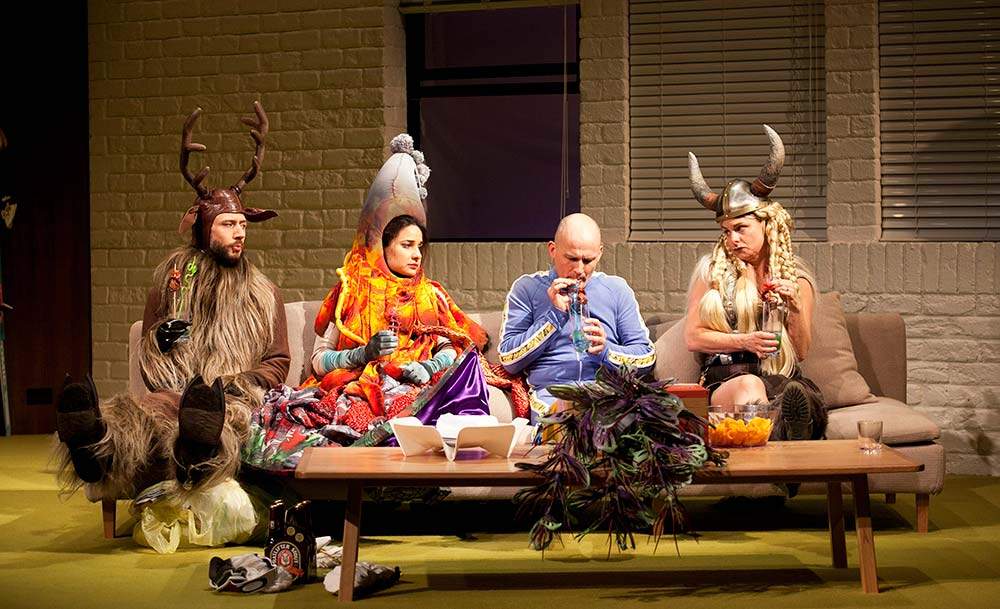Perplex – Sydney Theatre Company
A highly self-conscious meta work that's a laugh a minute.
Overview
To feel perplexed is to feel completely baffled by something complicated or unaccountable. Aptly titled, Perplex, is a fantastically absurdist German play by Marius von Mayenburg that delves into all the bourgeois contemporary problems a Sydney Theatre Company audience could ask for.
Paying bills, dealing with stifling relationships, exploring sexuality, quitting work, renting holiday apartments, employing au pairs and cleaning ladies, being a bit racist and dealing with weird friends at parties is all subject matter ripe for farcical unpicking, and Mayenburg digs in with no holds barred.
Directed deftly by Sarah Giles (Mrs Warren's Profession), this is theatre beyond theatre a highly self-conscious meta work with existentialist philosophy centre stage, wreaking havoc for the four actors and dishing out humour as if it were going out of style. It's a laugh a minute. Nobody and nowhere is what you thought it was, is or will be. Is anything even here or there or anywhere at all?
The performances, particularly Andrea Demetriades' realness (even in an outrageous volcano costume) are a highlight. Glenn Hazeldine is also hilarious as a tantrum-throwing 11-year-old-turned-Nazi. The hour and a half is packed with good old-fashioned slapstick, full frontal nudity, fancy dress costumes, a mysterious smell and an unopened package.
The setting is a simply furnished apartment living room, which serves as a generic background for the overlapping scenes. The actors keep their same names throughout, though slip into different characters and situations at the seemingly skittish whim of the writer. One character is often left momentarily in the previous scene, a sort of glitch that incites confused questions of identity and truth before he or she adapts to the new truths insisted upon by the newly transformed characters. Tiny fragments from props to phrases are woven through the work, another tactic to prompt the residual feeling that everything is, in the end, all the same as everything else.
By and large, the writing is intelligent, quick-paced and unpredictable. At its best, the dialogue is sharp and minimal. But this drops off towards the end as the fourth wall breaks down and the actors descend into long, heavy-handed existential musings that kill off a bit of the charm and slow it down.
It's saved again though, by the sheer weirdness of the ending. And after all that, you can't help but laugh.
Image by Lisa Tomasetti.





